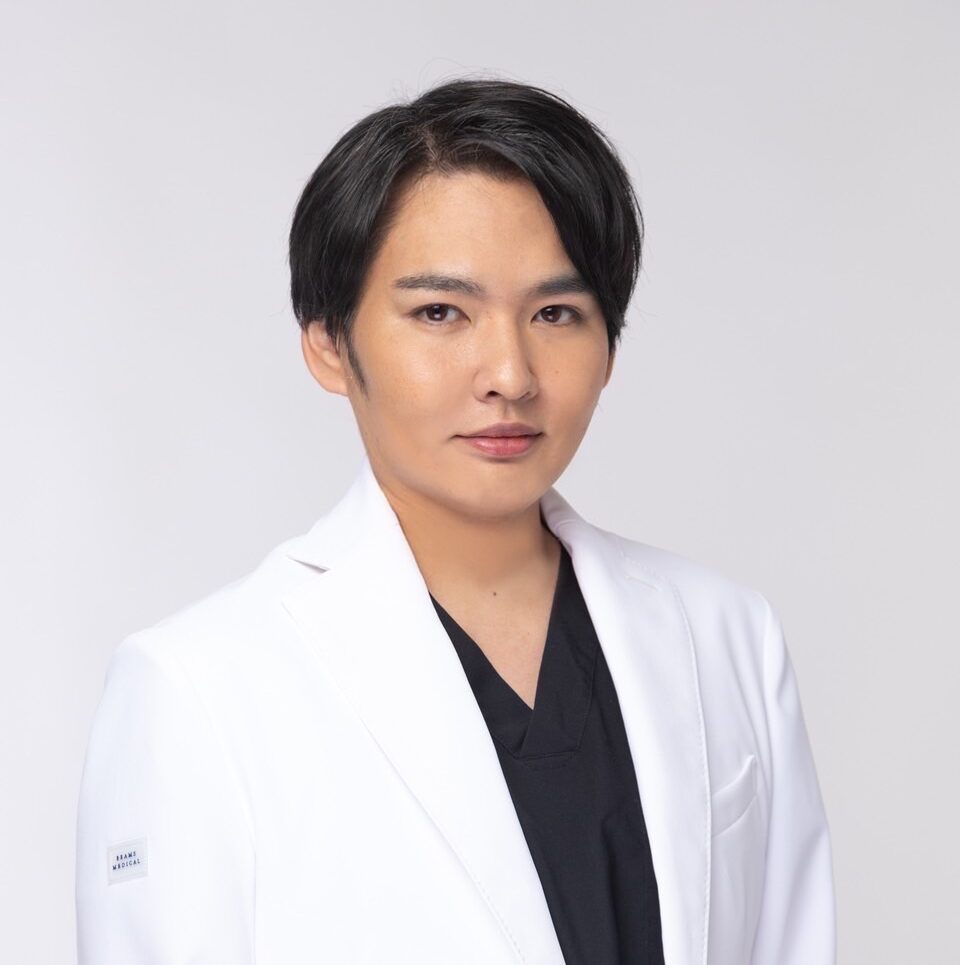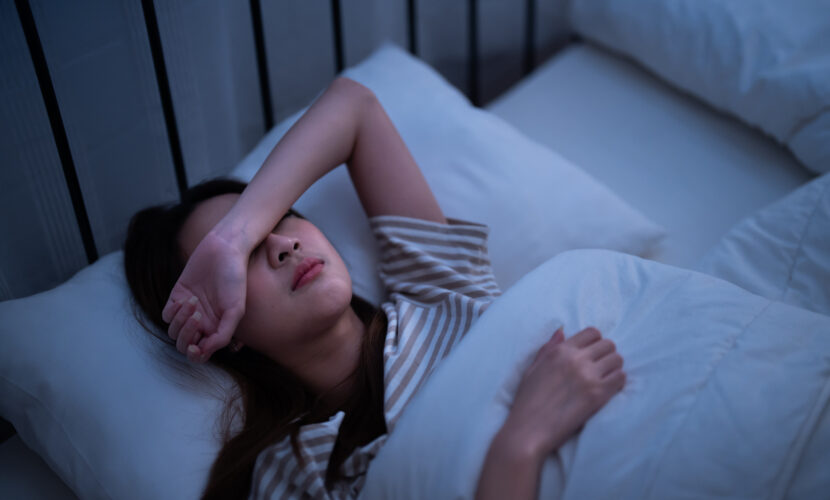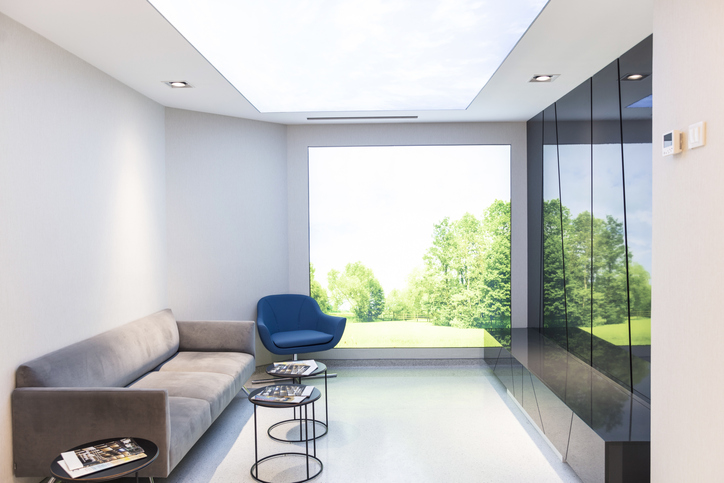Many people have sleep problems, such as having trouble falling asleep or waking up several times in the middle of the night these days. Sleep disorders caused by chronic stress are particularly common among modern people. Work pressure, relationship problems, and anxiety about the future create tension in the brain and body, making it difficult to relax at night, resulting in a significant decrease in the quality of sleep.
Here, we will medically explain the effects of stress on the autonomic nervous system and hormones, while clarifying what sleep disorders are likely to appear. We will then carefully convey measures that can be implemented today, including self-care and guidelines for consulting a medical institution to protect your beauty and health.

Graduated from the Faculty of Medicine, National Kumamoto University. After serving as the director of major beauty clinics in Japan, etc., he opened Aladdin Aesthetic Clinic in 2023. He is a professional in aesthetic medicine with a doctorate in anti-aging research and many years of experience. With the motto of "Toward the realization of cosmetic medicine without lies," he aims to be the "Only One" together with his patients.
- How are stress and sleep disorders related? Understanding from the Nervous and Hormonal Functions
- What Sleep Disorders Are There? Four common types of stress-induced
- Case 1|Difficulty falling asleep "Cannot fall asleep
- Case 2|Midwakefulness "Waking up several times during the course of the day
- Case 3|Early morning awakening "Waking up early in the morning and unable to re-enter sleep"
- Case 4|Lack of a sense of sound sleep "I feel tired even though I should have slept.
- What are the characteristics of each and how to distinguish between them?
- What Happens When Sleep Disorders Are Left Untreated? What are the risks to health and beauty?
- You can start today! Self-Care and Lifestyle Habits to Improve Stress and Sleep Disorders
- What are the signs of a situation that is difficult to handle on your own? Situations that should be discussed with a health care provider
- Insomnia and disturbance to daily life for more than 2 weeks
- If over-the-counter medications or supplements do not improve
- Treatment in medical institutions: cognitive behavioral therapy and pharmacotherapy
- For the sake of beauty, don't force yourself to endure it, but consult a professional organization.
- summary
How are stress and sleep disorders related? Understanding from the Nervous and Hormonal Functions
Our mind and body are more closely connected than we can imagine. The stress we feel during the day can cause our minds to buzz at night, causing us to feel light-headed and unable to sleep, or tired but unable to fall asleep.
This background involves an elaborate balance of autonomic nerves and hormones, and stress disrupts this mechanism, resulting in sleep disorders.
Why is it difficult to sleep when the autonomic nervous system is disturbed?
The autonomic nervous system, which regulates functions in the body independently of our will, is mainly divided into the sympathetic and parasympathetic nervous systems. The sympathetic nervous system is dominant during daytime activities, while the parasympathetic nervous system is active at night and during relaxation. The balance of these autonomic nerves is essential for a healthy sleep rhythm.
However, when stressed, the sympathetic nervous system is overstimulated and a tense "fight or flight" mode persists. If this state persists, the body will not switch to the parasympathetic nervous system at night, and the body will not be ready for "rest.
In other words, stress disrupts the autonomic nervous system, causing the body to remain awake at the time it should be sleeping.
Relationship between sympathetic and parasympathetic nerves and sleep
The following chart briefly illustrates the effects of the sympathetic and parasympathetic nervous systems on sleep.
| Nerve type | Main working hours | Main Role | Effect on sleep |
|---|---|---|---|
| sympathetic nerves | daytime | Increased heart rate and blood pressure, improved concentration | Keeps you active and prevents you from falling asleep |
| parasympathetic nerves | at night | Heart rate and blood pressure decrease, muscle relaxation | Promotes drowsiness and supports deep sleep |
When stress persists, the sympathetic nervous system continues to function at night and the parasympathetic nervous system does not become dominant. As a result, sleep disorders such as difficulty falling asleep and shallow sleep become apparent.
Stress-induced hormonal changes? Effects of cortisol
The effects of stress on sleep are not limited to the nervous system. Hormonal imbalances also contribute to serious sleep disturbances. Of particular note is a hormone called cortisol.
Cortisol is a hormone secreted by the adrenal glands to counteract stress, maintain blood sugar and blood pressure, and support response to external stress. However, when cortisol levels, which are supposed to drop at night, remain high under the influence of stress, the body mistakes it for an active state, making it difficult to fall asleep.
In addition, stress-related hormones such as adrenaline and noradrenaline are also overproduced, resulting in increased heart rate and continued muscle tension, which reduces sleep quality.
What Sleep Disorders Are There? Four common types of stress-induced
In the previous chapter, we explained how stress affects the autonomic nervous system and hormonal balance, resulting in a significant loss of sleep quality. So, what types of "sleep disorders" are actually likely to occur as a result of stress?
Sleep disorders, in a nutshell, manifest themselves differently in different people and can be categorized according to which phase of sleep is causing the problem. Here we detail four typical types that are seen in many people triggered by stress.
Case 1|Difficulty falling asleep "Cannot fall asleep
Trouble falling asleep is the most common type of sleep disorder, and refers to the persistent symptoms of "difficulty falling asleep even when trying to sleep" or "inability to fall asleep even 30 minutes or more after getting into bed". In the background, sympathetic nervous system overactivity due to stress is strongly involved, causing the mind and body to remain in "fight mode" and unable to be sedated.
It may be accompanied by physical symptoms such as inability to stop thinking, lightheadedness, fast heart rate, sweating, etc. In particular, psychological tension, such as worries about work, relationship concerns, or other problems, such as "thinking about the next day" or "not being able to stop thinking negative thoughts when alone" can interfere with falling asleep.
Furthermore, if the brain's arousal hormones (adrenaline and dopamine) are predominant, simply getting under the covers can leave the brain in an active state and inhibit the secretion of melatonin (sleep hormone). If the condition becomes chronic, fear and anxiety about falling asleep are reinforced, and the secondary stress of "I may not be able to sleep again" creates a vicious cycle.
Case 2|Midwakefulness "Waking up several times during the course of the day
Mid-night awakening is a condition in which the patient "wakes up one to three times during the night or more," and the problem is that the intermittent awakenings are interrupted at the time when sleep is supposed to be the deepest. It is characterized by the need to go to the bathroom, waking up from dreams, and hypersensitivity to external noises.
The causes of mid-onset awakenings are complex, but the main cause is stress-induced shallow sleep. The brain is not sufficiently rested and the sympathetic nervous system becomes intermittently dominant, even during the night, making it easier to be awakened by even the slightest stimulus.
In addition, higher than normal nighttime cortisol (stress hormone) secretion makes it difficult to maintain deep sleep. Polysomnography (sleep electroencephalography), which measures the depth of sleep, has confirmed that people who repeatedly awaken in the middle of the night tend to have shorter periods of non-REM sleep (deep sleep) and an increased percentage of REM sleep (shallow sleep).
If left untreated, adverse effects on daily functions gradually accumulate, such as daytime sleepiness, impaired concentration, and weakened immune system.
Case 3|Early morning awakening "Waking up early in the morning and unable to re-enter sleep"
Early morning awakening is a condition in which a person wakes up two or more hours earlier than expected and is unable to fall back to sleep. It tends to be particularly common among the elderly, but in recent years, it is also increasing among younger people due to the accumulation of stress and mental strain.
This symptom is often also an early manifestation of depression or depressive tendencies. When there is an abnormality in the diurnal variation of cortisol, its secretion normally begins to rise at dawn, but under stress it is secreted excessively early, resulting in unnecessary arousal in the morning.
In addition, since REM sleep appears more frequently in the last part of sleep, psychological stress can make it easier to wake up in a dreamy state. If re-entry into sleep is difficult, the patient will wake up in the morning with a shallow sleep, and will not feel sufficiently rested even if he/she has had enough sleep.
From a cosmetic standpoint, it has been pointed out that sleep is disturbed during the late-night hours, when growth hormone secretion is at its peak, which may result in incomplete skin turnover.
Case 4|Lack of a sense of sound sleep "I feel tired even though I should have slept.
Lack of sound sleep is a sleep disorder that is accompanied by subjective discomfort such as "not feeling asleep" or "feeling groggy upon awakening. Even if the patient is able to sleep for a sufficient amount of time, the sleep is actually shallow or the patient is unconsciously awakened many times, resulting in a state that the body does not perceive as rest.
The main causes are stress-induced brain overactivity, autonomic nervous system disturbances, and lack of deep non-REM (slow wave) sleep. Sleep structure is easily disrupted when the continuity of sleep is disrupted, especially when there are concomitant mid-wake or sleep onset disorders.
Lack of a good night's sleep is a problem that cannot be ignored from the perspective of aesthetic medicine. This is because many of the physiological functions that support beauty and health, such as skin regeneration, hormone secretion, and immune regulation, are performed during deep sleep. If a chronic lack of a good night's sleep persists, cosmetic problems such as reduced skin elasticity and luster, puffiness, and dullness are likely to become more pronounced.
What are the characteristics of each and how to distinguish between them?
Different types of symptoms have different causes and different ways of coping with them. Therefore, the first step toward improvement is to determine which type your condition falls into.
Below we have prepared a comparison table outlining each symptom along with its degree of association with stress. (*The degree of association with stress is a reference index based on medical findings and may vary from person to person.)
| Types of Sleep Disorders | Characteristics of Main Symptoms | Degree of association with stress | Recommended Self-Care |
|---|---|---|---|
| sleep onset disorder | Cannot sleep for more than 30 minutes after getting under the covers | high | Abstinence from smartphones before bedtime, breathing exercises, lighting adjustments |
| mid-wakefulness | Waking up more than 1-3 times during the night | Middle to High | Bathing methods to lower deep body temperature, limiting sound stimulation before bedtime |
| early-morning arousal | Waking up in the morning and not being able to sleep again | Middle to High | Fixed wake-up time, increased activity during the day |
| lack of sleep | You should have slept, but you're still tired. | high | Appropriate bedroom environment, improved rhythm of life that promotes deep sleep |
Of the four types, difficulty falling asleep and lack of a sense of sound sleep are particularly markedly related to stress. The sympathetic nervous system remains dominant, which can easily cause problems such as "inability to fall asleep" and "inability to get a deep sleep.
Mid- and early-morning awakenings are also often caused by stress that impairs sleep depth and stability, and stress is clearly a powerful trigger in overall sleep disorders.
To deal with sleep disorders, it is important to first calmly analyze which type of insomnia you fall under. Instead of rushing to force yourself to sleep, carefully unraveling "why you cannot sleep" will reveal clues to improvement.
What Happens When Sleep Disorders Are Left Untreated? What are the risks to health and beauty?
In the previous chapter, we specifically introduced four types of sleep disorders (trouble falling asleep, mid-wake, early morning awakening, and lack of a sense of sound sleep) that are often triggered by stress. In all types, the common denominator is "poor sleep quality" and the accompanying accumulation of fatigue.
So what changes can occur in the mind and body if the condition is left untreated? While it is possible to recover from a temporary sleep disturbance, a chronic sleep disorder can lead to mental and physical discomfort, cosmetic deterioration, and even spill over into medical risks such as lifestyle-related diseases.
Risk to chronic fatigue due to disruption of physical and mental rhythms
Our body is equipped with an "internal clock (circadian rhythm)" that controls sleep and wakefulness, hormone secretion, body temperature, digestion and absorption, and other functions according to a daily rhythm. However, when sleep disorders persist, this rhythm is disrupted and the body becomes sleepy during the day and awake at night.
In addition, the inability to switch between the sympathetic and parasympathetic nerves results in a state of energy-saving mode during the day, which significantly reduces concentration and judgment. This is what is called "chronic fatigue," and it directly leads to decreased performance in work and studies and increased stress in relationships.
Furthermore, as the brain and body are unable to recover, the immune system is compromised, increasing the risk of catching colds, inflammation, and strong allergic reactions.
Cosmetic Effects! Rough skin, hormonal abnormalities, accelerated aging
From the perspective of cosmetic medicine, poor sleep quality should not be underestimated. Skin turnover (regeneration cycle) is activated mainly at night, during deep sleep. During this time, growth hormones are secreted, skin repair and cell metabolism proceed, and it is medically clear that quality sleep is the key to beautiful skin.
However, persistent sleep disturbance interferes with the secretion of growth hormones, leading to an increase in cosmetic problems such as the following
- Dry skin and reduced barrier function
- Acne and inflammation are harder to heal.
- Dullness, puffiness, and dark circles under the eyes worsen
- Accelerated formation speed of spots and wrinkles
- Loss of elasticity and firmness of hair and nails
Sleep deprivation can also affect the balance of female hormones (estrogen), resulting in irregular menstruation, worsening of PMS, and intensification of menopausal symptoms. This is due to the close linkage between the autonomic nervous system and the endocrine (hormonal) system, symbolizing that beauty and health are one and the same.
Leads to lifestyle-related diseases and mental disorders
Chronic sleep disorders are not only cosmetic, but also a risk factor for serious lifestyle and mental illnesses. The following are risks that have been identified in scientific studies.
| Diseases Involving Sleep Disorders | Main mechanisms of sleep deprivation |
|---|---|
| Hypertension and heart disease | Sympathetic overactivity, vasoconstriction, increased heart rate |
| Diabetes and insulin resistance | Disturbance of appetite hormones (leptin and ghrelin), hypometabolism |
| Obesity/Overeating | Suppression of satiety and excessive appetite due to lack of sleep |
| Depression and anxiety disorders | Abnormal secretion of serotonin and dopamine, impaired function of the brain's reward system |
| Alzheimer's disease | Disruption of the "brain waste elimination mechanism (glymphatic system)" during sleep |
In addition, mental instability such as "irritability," "lack of emotional control," and "depression for no reason" can greatly impair quality of life (QOL).
You can start today! Self-Care and Lifestyle Habits to Improve Stress and Sleep Disorders
In the previous chapter, we reported on the potential serious risks to beauty and health, as well as lifestyle-related diseases and mental health problems, that can occur if sleep disorders are left untreated. So what actions should we take every day to prevent them?
It is quite possible to restore natural sleep by understanding the relationship between sleep and stress from a medical perspective and practicing self-care based on this mechanism. Here are some specific lifestyle improvement points that you can incorporate today.
NG habits before falling asleep and points to review
Many people do "sleep-disrupting behaviors" without realizing it. Let's start by letting go of these NG habits.
Simply reviewing these factors will make it easier for the autonomic nervous system to switch to parasympathetic dominance, creating an environment conducive to sleep.
Review point 1) Use of smartphones and computers
Blue light wakes up the brain and inhibits the secretion of the sleep hormone (melatonin). Avoid screen time 1-2 hours before bedtime.
Review point 2) Caffeine intake just before bedtime
Caffeine, found in coffee, green tea, and energy drinks, stimulates the central nervous system. Limit intake to early afternoon if possible.
Review point 3) Lighting brightness
Keeping the room bright before going to bed also reduces the quality of sleep. Switch to indirect lighting or warm colors to gradually induce the brain to go into "night mode.
Breathing, bathing, and eating habits that improve sleep quality
To facilitate falling asleep and improve sleep quality, a relaxing approach to the body and mind is effective.
Calming the nerves with the "4-7-8 breathing technique."
The 4-7-8 breathing method, proposed by American physician Dr. Andrew Weil, is a relaxation method that is believed to lead to parasympathetic dominance.
- Breathe in through your nose for 4 seconds.
- Hold breath for 7 seconds
- Spit it out slowly through your mouth over a period of 8 seconds.
Repeat this one cycle three to four times. By focusing your attention on the rhythm, distractions fade and tension is relieved.
Take a bath at a "lukewarm" temperature of 40°C or less.
Water that is too hot stimulates the sympathetic nervous system and may adversely affect sleep. Soaking in lukewarm water (40°C or lower) for 10-15 minutes one to two hours before going to bed coincides with the timing of the fall of deep body temperature and promotes natural sleepiness.
The brightness and fragrance of the bathroom can also be used to create a deeper relaxing effect.
Quantity and timing are key to eating before bed.
Eating a meal just before going to sleep stimulates the gastrointestinal tract and interferes with falling asleep. A good rule of thumb is to eat dinner at least 2 to 3 hours before bedtime. It is recommended to choose a menu centered on Japanese food, which is easy to digest, and foods containing tryptophan (a raw material for sleep hormone). (Examples: bananas, dairy products, natto, tofu, eggs, etc.)
Daytime activities change how you sleep at night.
Good sleep cannot be achieved through nighttime efforts alone. Daytime activities such as "morning light," "midday exercise," and "how you spend your time in the evening and beyond" have a significant impact on how well you sleep at night.
- Exposure to sunlight when you wake up: Exposure to natural sunlight for 5-15 minutes after waking up resets your body clock and sets the rhythm for natural sleepiness at night.
- Moderate exercise during the day: Walking and light stretching promote serotonin secretion, which leads to melatonin production at night.
- Be careful about nap times: long naps and evening naps can interfere with nighttime sleep; ideally, keep naps to a short duration of 20 minutes or less.
If necessary, check the following self-care points for improvement.
| Self-care items | Key points for improvement | implementation guideline |
|---|---|---|
| Restrictions on use of smartphones and PCs | Stop using 1 to 2 hours before bedtime | every night |
| Breathing (4-7-8 breathing technique) | Deep breathing before bed relieves tension. | 3-5 minutes before bedtime |
| Timing and temperature of bathing | Soak in lukewarm water below 40°C for 10-15 minutes | 1-2 hours before bedtime |
| Morning sunbathing | Exposure to natural light for 5-15 minutes after waking up | every morning |
| Timing and content of meals | Finished at least 2 to 3 hours before bed and easily digestible | every night |
| Light exercise and stretching | Serotonin activity and alleviation of fatigue | Ideally at least 3 times a week |
What are the signs of a situation that is difficult to handle on your own? Situations that should be discussed with a health care provider
In the previous chapter, we introduced specific measures to improve stress and sleep disorders through lifestyle and self-care. However, not all insomnia symptoms can be improved by self-care alone.
In cases where stress is high and chronic, or in cases where sleep rhythms are already severely disrupted, medical intervention may be necessary. Here, we will explain in simple terms the specific signs to look for to determine "when to consult a medical institution," the types of treatment methods, and how to choose a medical institution.
Insomnia and disturbance to daily life for more than 2 weeks
If the sleep disturbance is temporary, it may be restored through lifestyle changes and stress reduction. However, if the following conditions persist for more than two weeks, consider it a sign that you should opt for professional handling rather than expecting a natural recovery.
- Cannot sleep under the covers and cannot fall asleep for more than one hour every night
- Waking up several times during the night and feeling that you are not getting a good night's sleep
- Waking up early in the morning and then going to work without being able to sleep
- Feeling very sleepy during the day/ Unable to concentrate at work
- Continued fatigue and cosmetic skin problems.
These are all conditions in which sleep is interfering with life. It is important to consult a specialist as soon as possible, especially if it has been going on for more than two weeks, as it could be insomnia, depression, or an adjustment disorder.
If over-the-counter medications or supplements do not improve
When suffering from insomnia, many people may try sleep-enhancing drugs (such as Doriel) or supplements (containing GABA and melatonin) available over the counter at drugstores.
It may be useful for temporary insomnia or mild stress, though,
- I can't feel the effects.
- Insomnia recurs as soon as you stop using it.
- Continued inability to sleep without continuing to take the medication
If the situation is such that a medical approach is already required, then it is already at a stage where a medical approach is needed.
It is also recommended that a physician's judgment be sought, as self-judged regular use of medications risks dependence, side effects, and further deterioration of sleep quality.
Treatment in medical institutions: cognitive behavioral therapy and pharmacotherapy
In medical institutions, treatment is based on scientific evidence (evidence-based medicine) according to the cause and severity of insomnia. The following are the main treatment modalities
Cognitive Behavioral Therapy (CBT-I)
CBT-I (Cognitive Behavioral Therapy for Insomnia) is a psychotherapy specific to insomnia and in recent years has been recommended as the first option over drug treatment.
- Correct "false beliefs" and "excessive anxiety" about sleep.
- Control bedtime and wakeup time and readjust the body's internal clock
- Review the sleep environment and introduce relaxation techniques.
It is a reliable treatment with no side effects and a low recurrence rate.
pharmacotherapy
Sleep inducers and anti-anxiety medications may also be prescribed, depending on the physician's judgment. There are several types,Since prescriptions and medication guidance are given in consideration of side effects and dependency risks, self-judgmental use should be avoided, and proper use in cooperation with a physician is necessary.
For the sake of beauty, don't force yourself to endure it, but consult a professional organization.
Beauty and health are supported by "good sleep. If insomnia persists to the extent that your skin or physical condition is affected, it may be an SOS from your body.
The shortcut to fundamental recovery is to recognize the signs of illness and take appropriate measures as soon as possible, rather than continuing to push yourself, saying, "I'm fine," or "Let's wait and see how things go.
Consulting a health care provider is a choice to take care of yourself, not a weakness.
summary
Stress-induced sleep disturbances are not just "sleepless nights," but can cause major imbalances in the body and mind, including rough skin, fatigue, lifestyle-related diseases, and mental disorders. In particular, chronic poor sleep quality caused by autonomic nervous system and hormonal disorders may accelerate the aging process and metabolic disorders in terms of beauty.
First, it is important to review your daily lifestyle and the environment in which you fall asleep, and practice self-care to regulate your natural rhythm, such as breathing exercises, bathing, and morning light. If there is still no improvement, consulting a specialized medical institution can lead to fundamental recovery in many cases. Sleep is the foundation of beauty and health. Early action is the key to creating a comfortable life from tomorrow.
At Aladdin Aesthetic Clinic, based on our many years of experience in cosmetic medicine and cosmetic dermatology and the knowledge of our doctoral degree, we provide counseling that aims to be "only one", offering the best treatment for each person we meet. We offer only the necessary treatments without any unnecessary information or suggestions.
Feel free to use our official LINE account for 24-hour counseling and reservations. Please feel free to contact us for free counseling for the first time or if you have any concerns.






